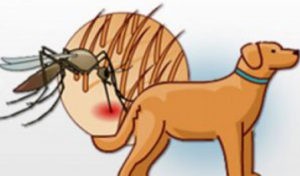 Dental disease is more than just a cosmetic issue. An unhealthy mouth allows bacteria to access the body’s blood supply. This shower of bacteria can cause irreversible damage to the liver, kidneys, joints and heart. The damage would not be immediate but insidious in nature, perhaps not manifesting until years later. Fortunately, there are steps you can take to help prevent dental disease.
Dental disease is more than just a cosmetic issue. An unhealthy mouth allows bacteria to access the body’s blood supply. This shower of bacteria can cause irreversible damage to the liver, kidneys, joints and heart. The damage would not be immediate but insidious in nature, perhaps not manifesting until years later. Fortunately, there are steps you can take to help prevent dental disease.
Dental Care Starts at Home
Dental care is best started at home with a puppy or kitten. Brushing your pet’s teeth can be a positive experience, but it will take patience, perseverance and a good attitude (from you and your pet). Special dog and cat toothpastes and brushes are available. It is not advisable to use human toothpastes, because the ingredients could potentially irritate the pet’s gastrointestinal tract if swallowed.
Professional Cleanings
All pets need to have their teeth professionally cleaned periodically. How often depends on several factors, including the overall condition of your pet’s teeth. Pets live better lives today, because of advances in pet health care, including improvements in dental care. Dental X-rays, root canals, braces and other advanced treatments are available for dogs and cats. In most cases, routine dental cleanings can be performed by your veterinarian; if special procedures are required, your pet may be referred to a veterinary dental specialist.
Addressing Anesthesia
To help ensure a thorough and effective dental cleaning at your vet, a pet needs to be put under anesthesia. Plenty of safeguards are in place, making modern anesthesia extremely safe. Before a pet undergoes an anesthetic procedure, your veterinarian will want to perform a complete physical examination. Depending on the age and general condition of the pet, a preanesthetic blood panel may be recommended. Many of the same monitoring devices that are available in human medicine are also used for cats and dogs. While a pet is under anesthesia, your veterinary team will administer intravenous fluids, monitor your pet’s heart rate and record the amount of oxygen in the blood, blood pressure and electrical activity of the heart.
Look for Safe Chew Toys
Pets love to explore their environment by chewing on things. They will gnaw on wood, rocks, chain-link fences and even themselves. These chewing movements can result in broken or loosened teeth. Foreign material embedded under the gum line can weaken the attachment of the tooth to the jaw and also act as a source of foul breath. When offering a pet a treat, toy or dental chew, be sure it is dental safe. Look for the Veterinary Oral Health Council (VOHC) Seal of Acceptance. Products that sport this seal have been shown to be safe and effective. When in doubt, ask your veterinarian.
Other Treatments
In addition to professional cleanings, dental chews and at-home brushing, there are rinses and other products that can help improve pet oral hygiene.
This blog was written by McQueen Animal Hospital, an animal clinic (vet hospital/vet clinic) in Brampton committed to providing only the highest level of veterinary care to our beloved pets.




